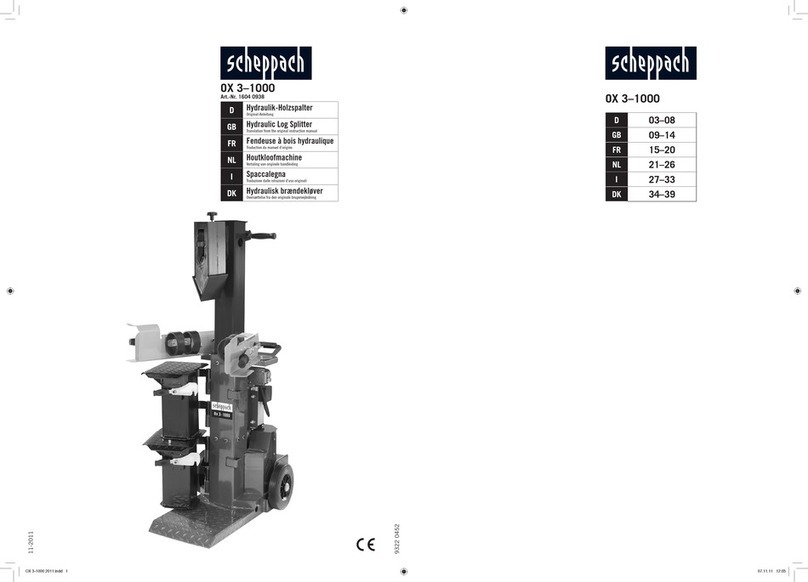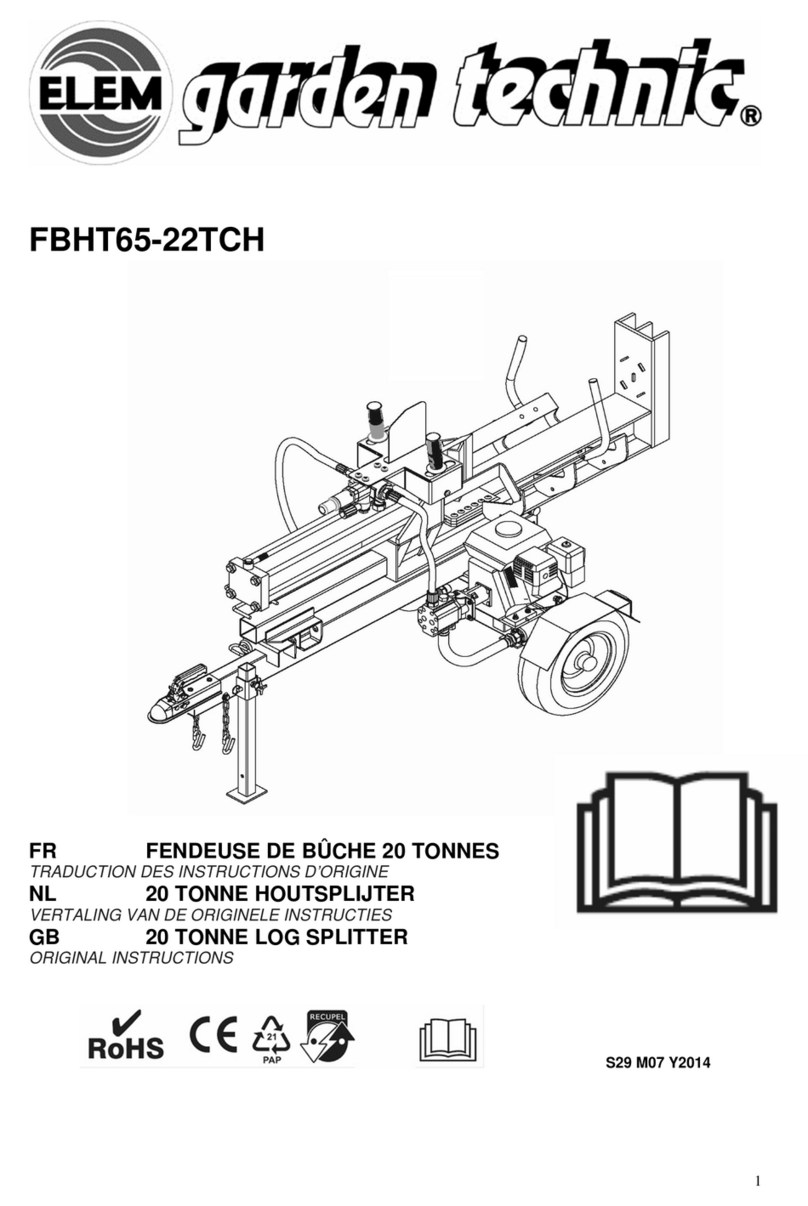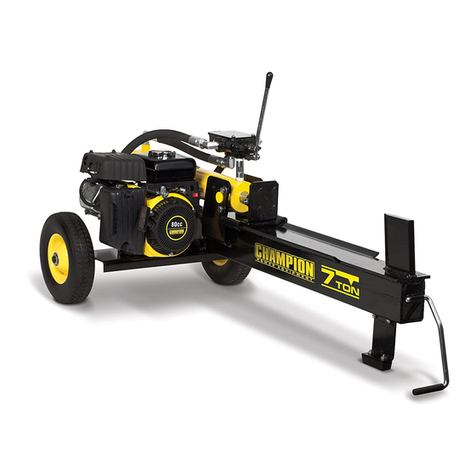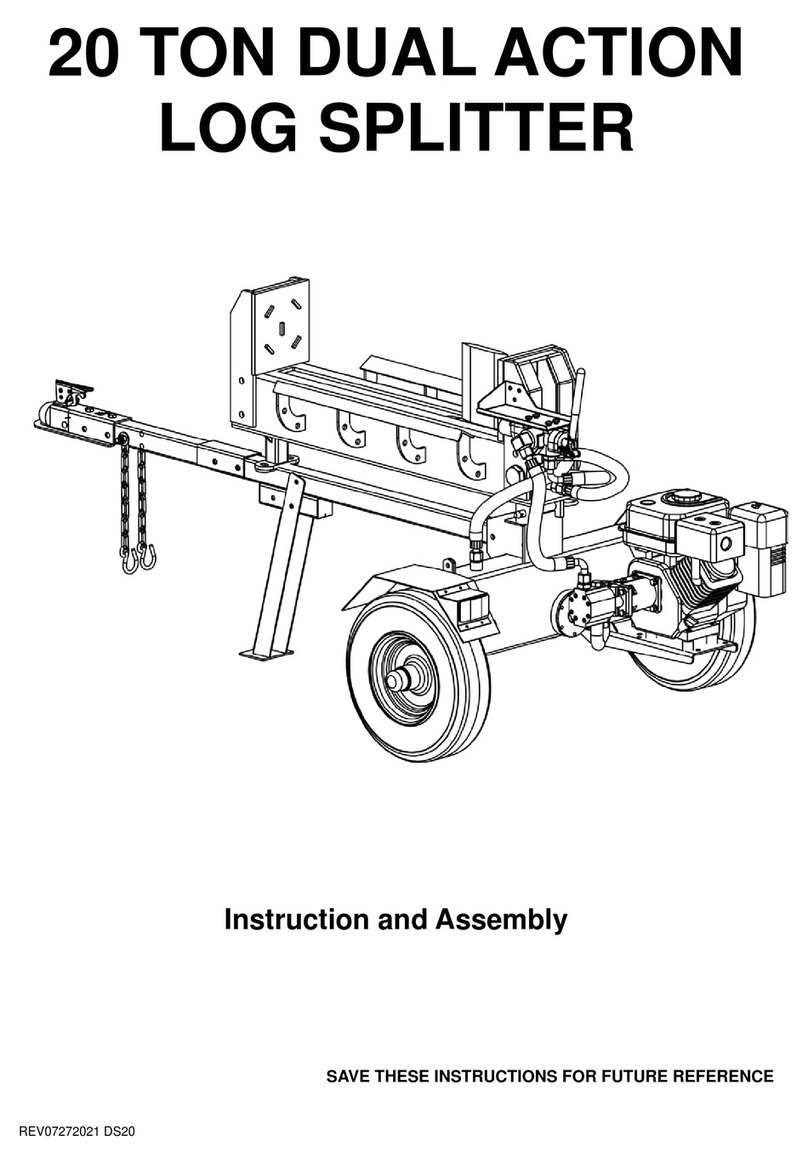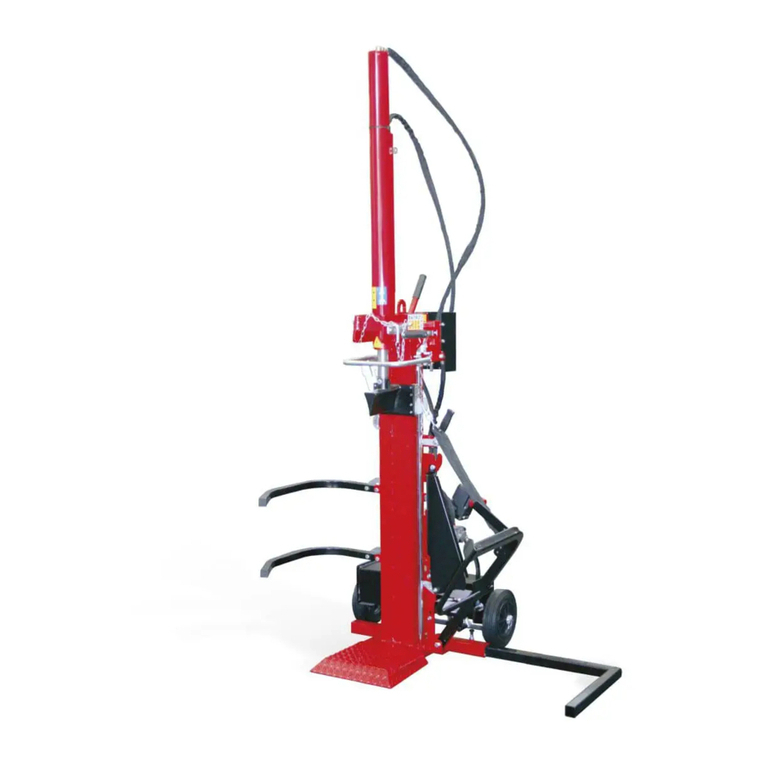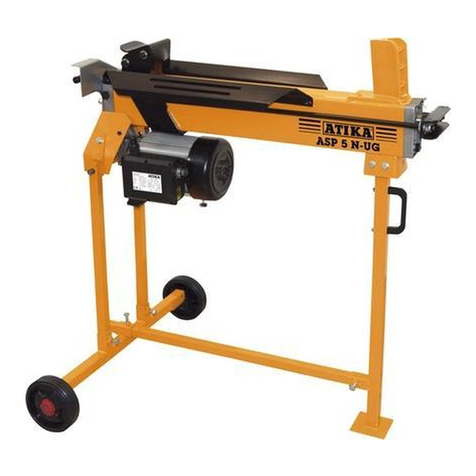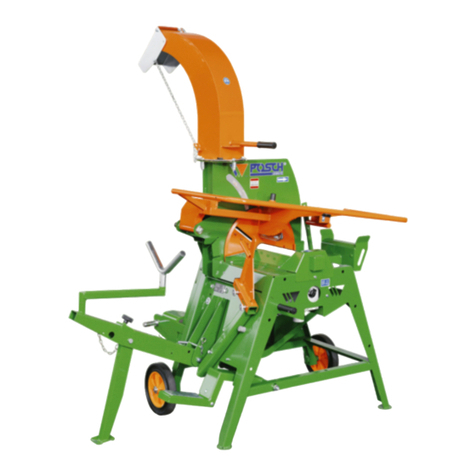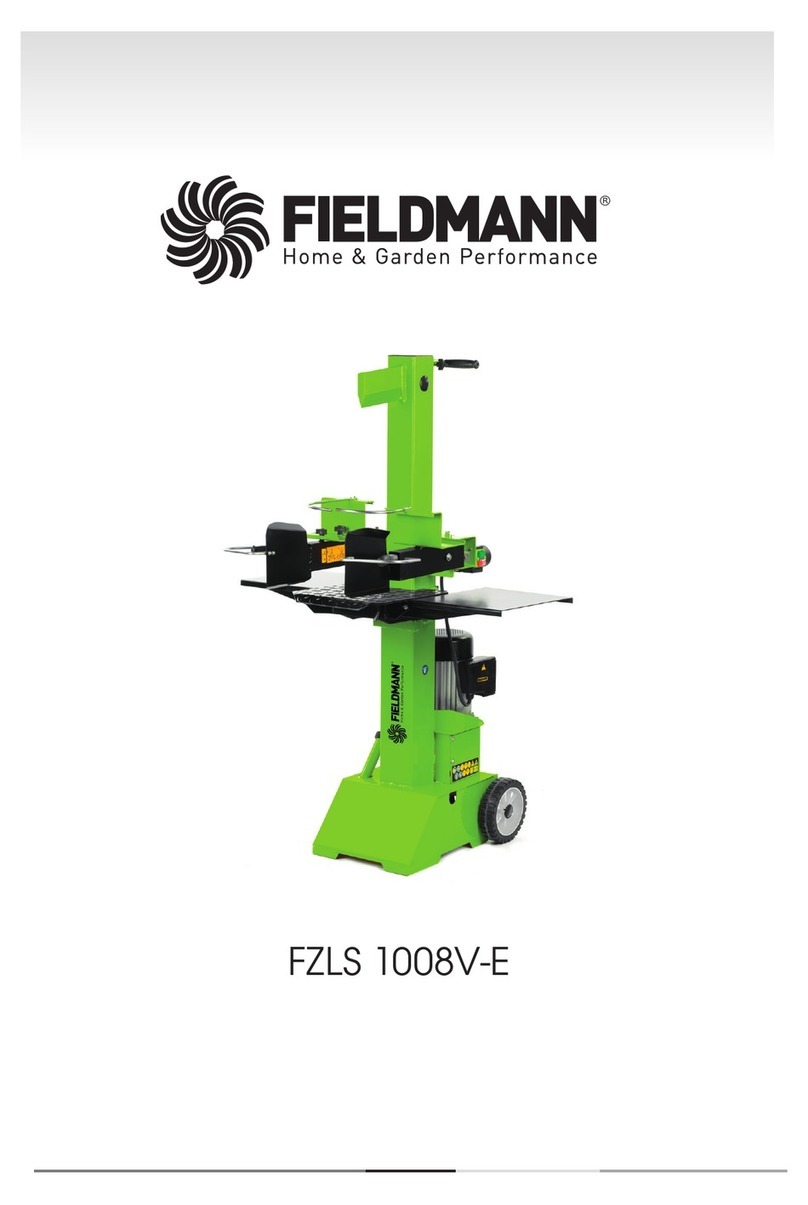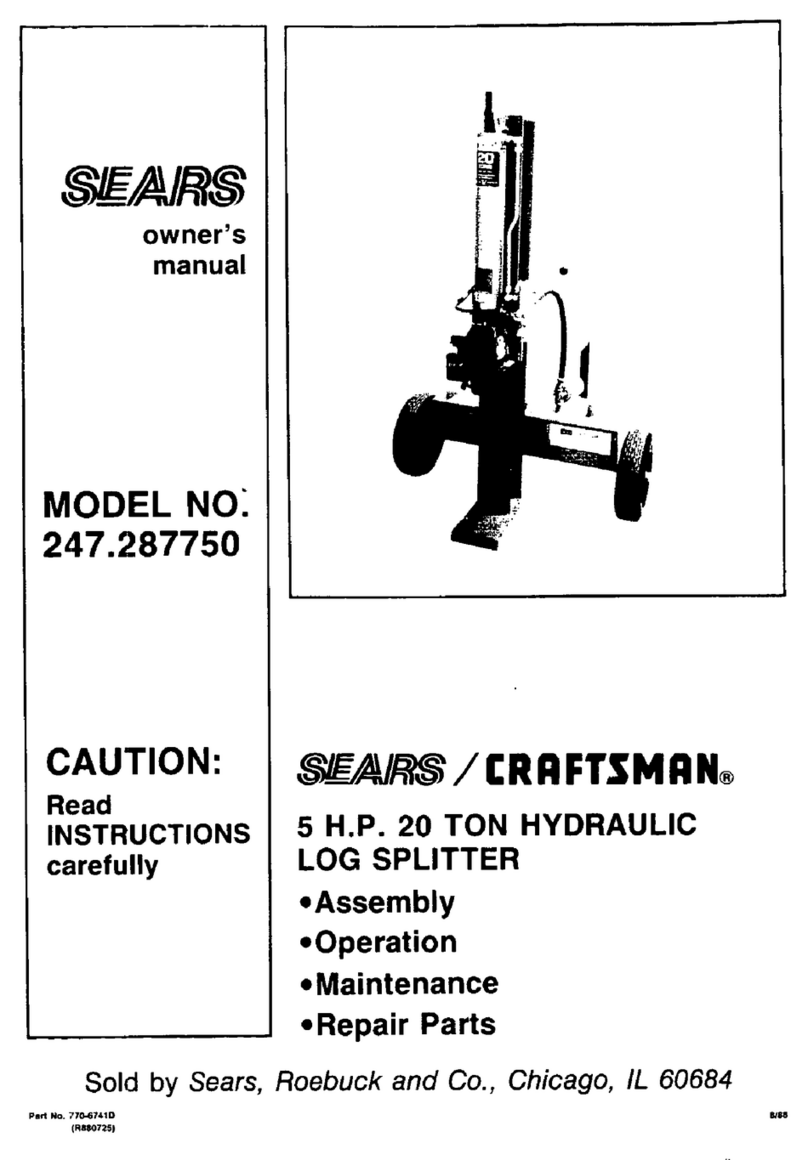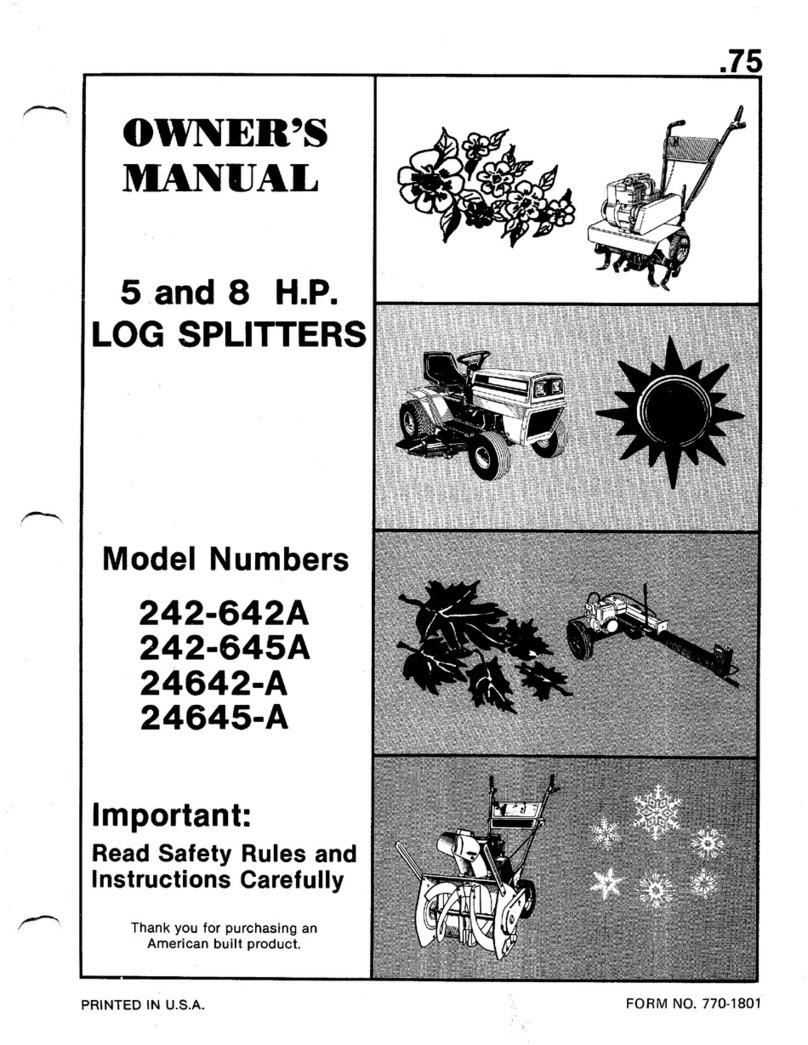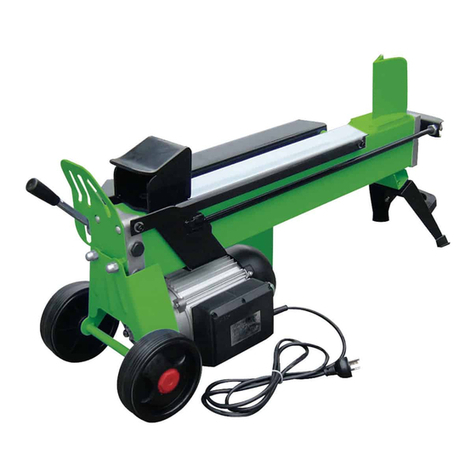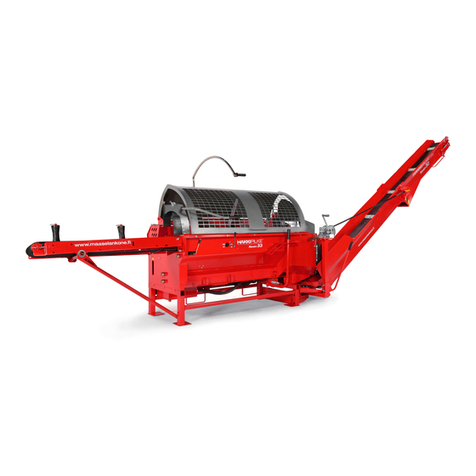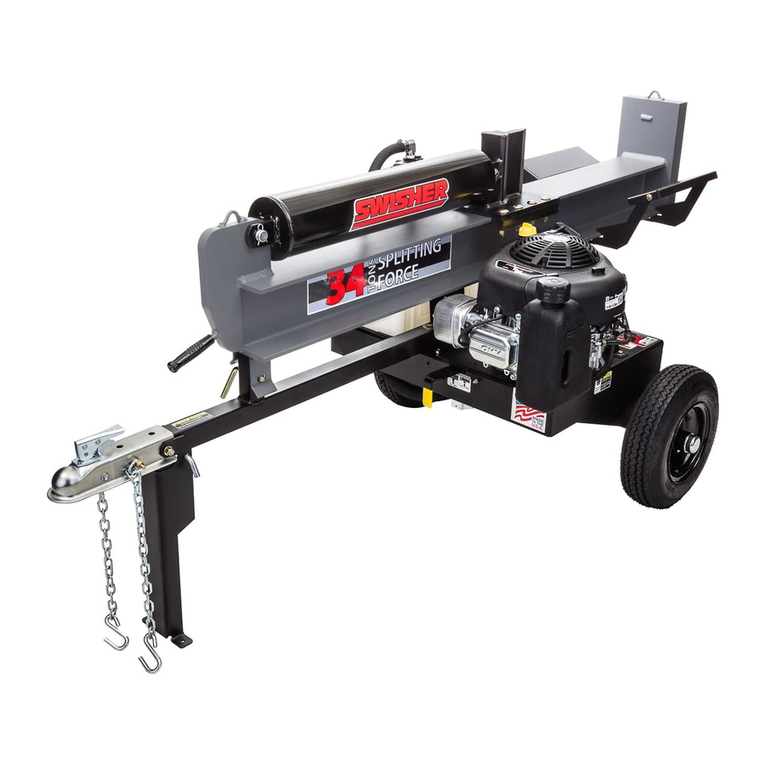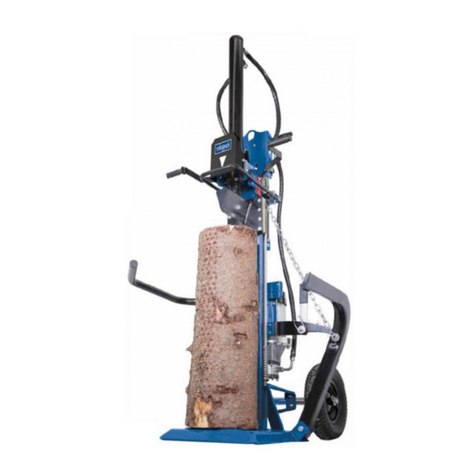
- 10 -
STEP 7: Add Engine Oil
1. Make sure the log splitter is on a level surface.
2. Remove oil fill cap/dipstick to add oil.
3. Refer to the separate owner’s engine manual for the amount needed of SAE10W-30 engine oil;
replace oil fill cap/dipstick.
4. Check engine oil level daily and add as needed.
NOTE: During the break-in period check the engine oil level often.
STEP 8: Add Gasoline to the Engine
1. Use only clean, fresh, regular unleaded fuel with a minimum 87 octane rating.
2. DO NOT mix oil with fuel.
3. Remove the fuel cap and slowly add fuel to the tank. DO NOT overfill allow approximately ¼
inch of space for fuel expansion.
4. Screw on the fuel cap and wipe away any spilled fuel.
Fuel and fuel vapors are highly flammable and extremely explosive.
Fire or explosion can cause severe burns or death.
Unintentional startup can result in entanglement, traumatic amputation or laceration.
Only use regular unleaded gasoline with a minimum 87 octane rating.
DO NOT mix oil and gasoline together.
Fill tank approximately ¼” below the top of the tank to allow for fuel expansion.
DO NOT fill fuel tank indoors or when the engine is running or hot.
DO NOT light cigarettes or smoke when filling the fuel tank.
STEP 9: Add Hydraulic Oil
CAUTION
DO NOT attempt to crank or start the engine before it has been properly filled with the recommended
type and amount of oil. Damage to the log splitter as a result of failure to follow these instructions will
void your warranty.
Log splitter engine exhaust contains carbon monoxide, a colorless, odorless, poisonous gas.
Breathing carbon monoxide will cause nausea, dizziness, fainting or death. If you start to feel dizzy
or weak, get to fresh air immediately.
Operate the log splitter outdoors only in a well ventilated area.
DO NOT operate the log splitter inside any building, enclosure or compartment.
DO NOT allow exhaust fumes to enter a confined area through windows, doors, vents or other
openings.
DANGER CARBON MONOXIDE, using a log splitter indoors CAN KILL YOU IN MINUTES.
1. The log splitter needs to be on a flat level surface before adding the hydraulic oil.
2. Remove the oil cap from the hydraulic reservoir.
3. Add 4.49 gallons of hydraulic oil. AW32, AW46 & universal hydraulic oil are all acceptable types
of fluid. Automatic transmission fluid should be used when operating in temperatures
below 32 degrees (all units are tested and have excess oil in the ram).
4. Check the hydraulic oil level.
